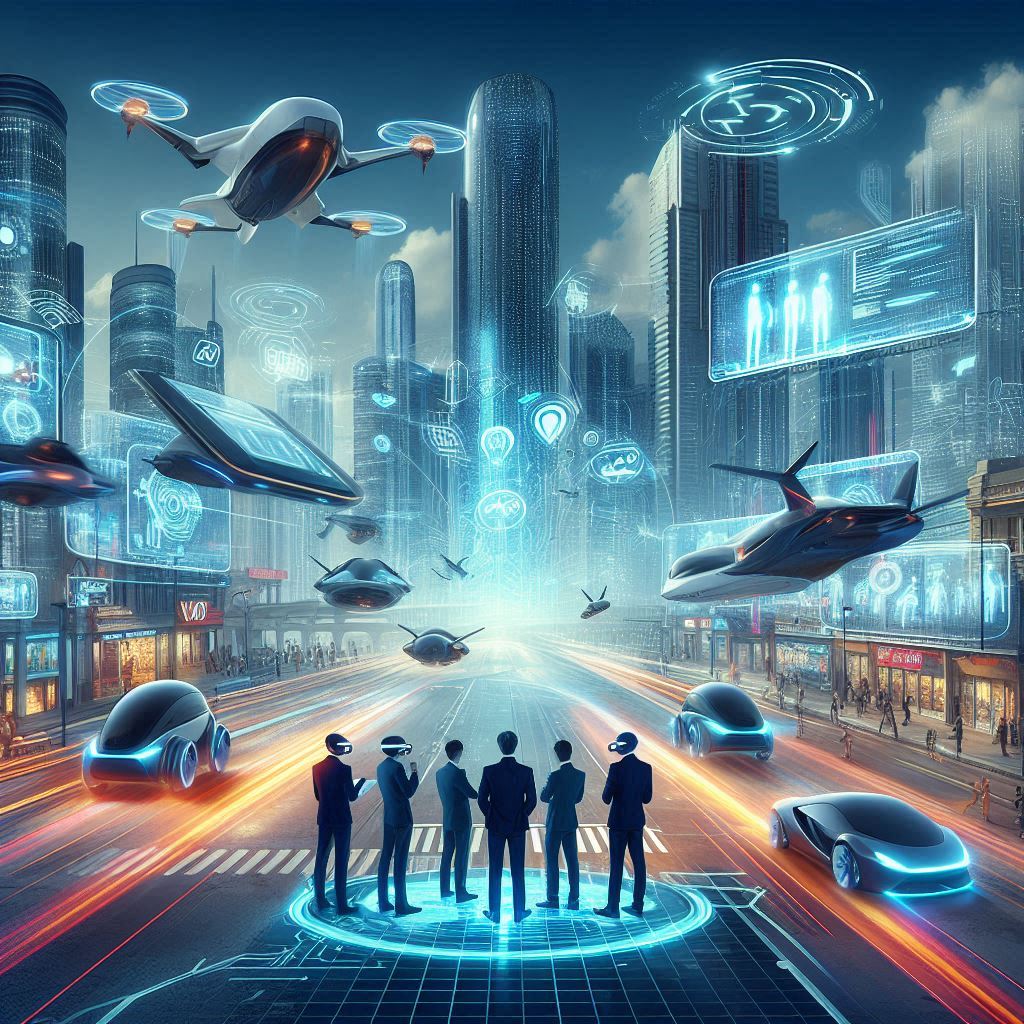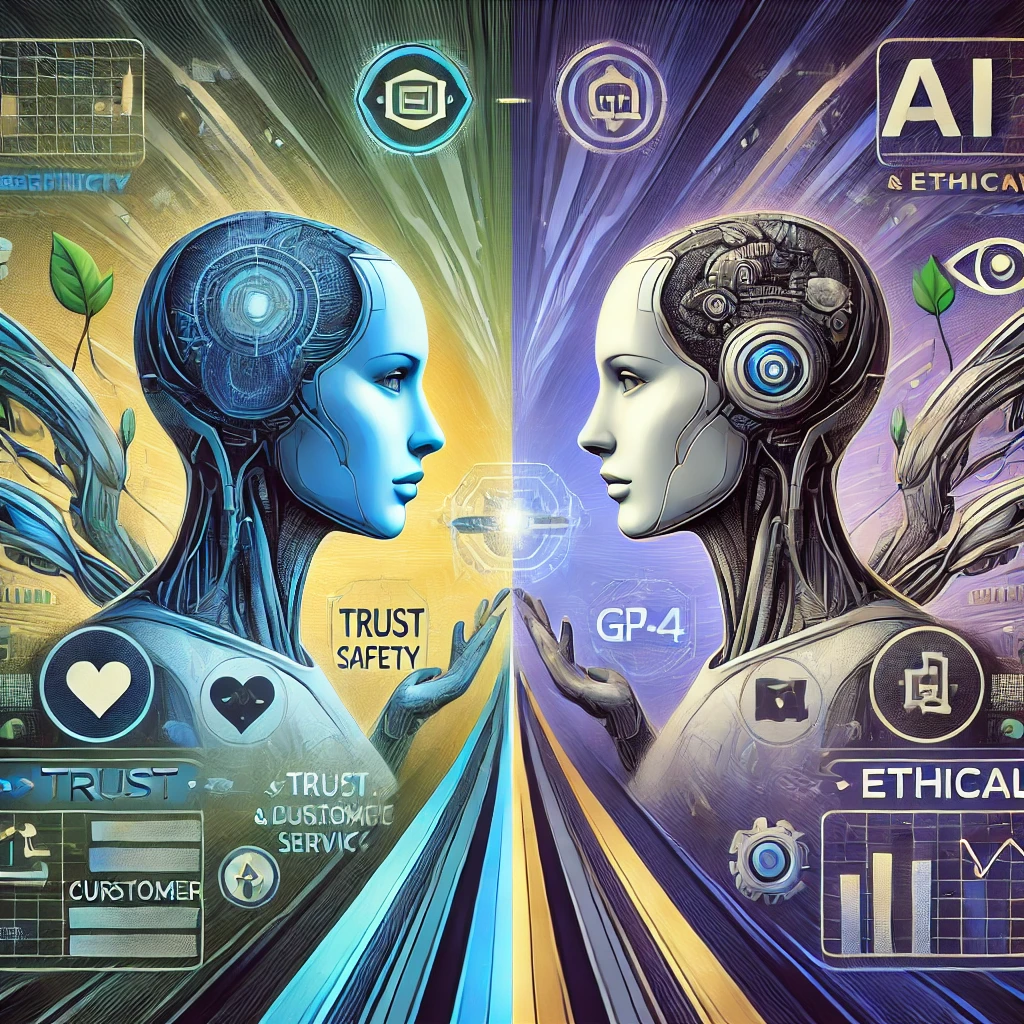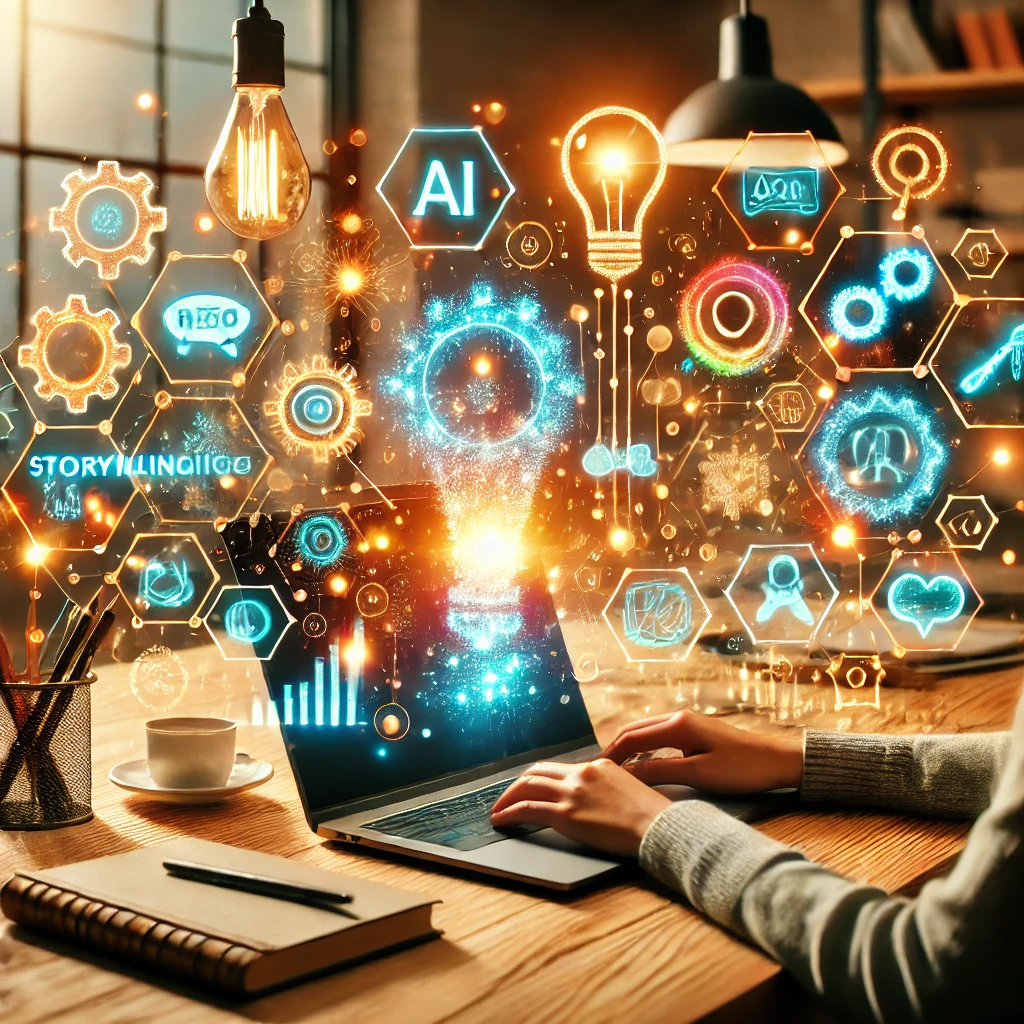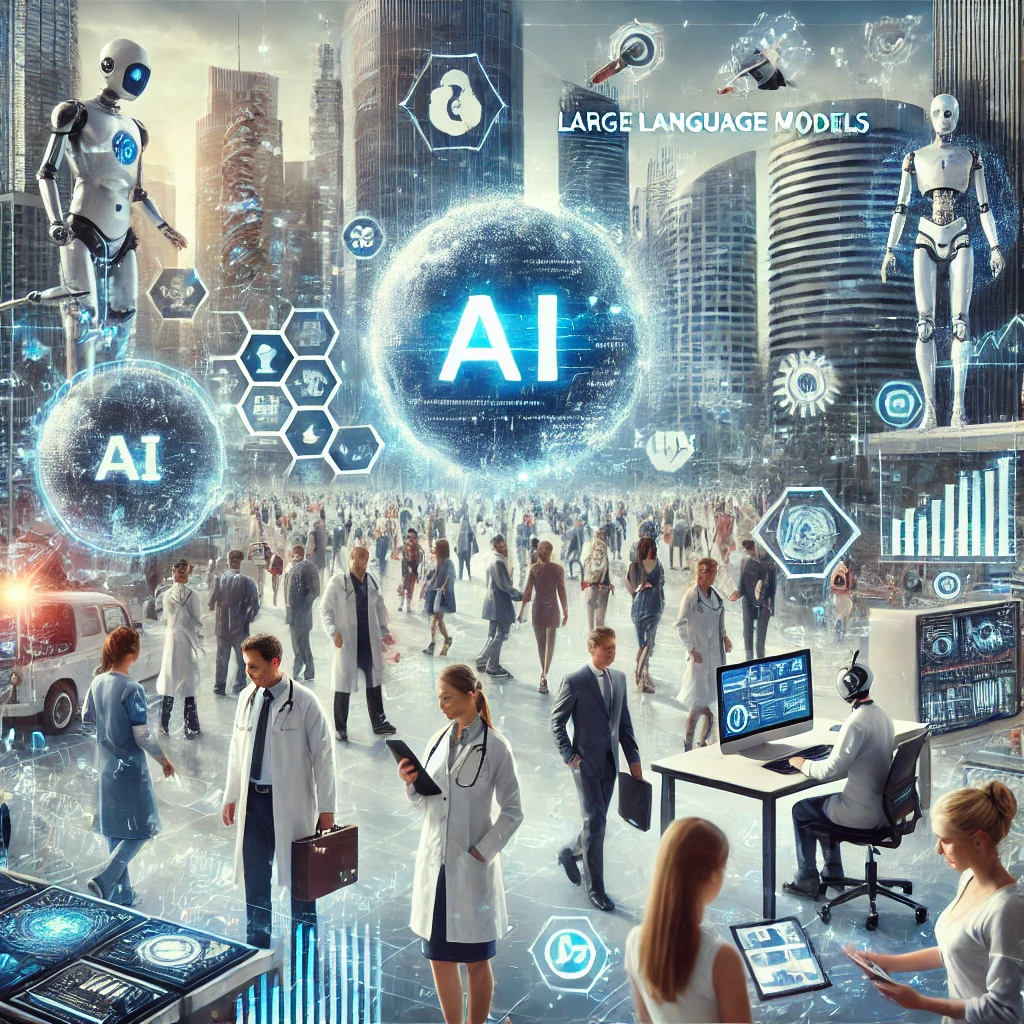AI Personalization Trends in the Digital Era

Introduction:
The Power of AI Personalization Trends In today’s fast-paced digital landscape, AI-powered personalization is more than just a buzzword—it’s a revolution shaping the way we connect with products, services, and content.
In 2025 and beyond, AI-driven experiences will transform everyday interactions, with hyper-personalized recommendations in e-commerce, tailored content in streaming platforms, and bespoke wellness insights in healthcare.

AI’s capacity to interpret and respond to individual preferences in real-time has made personalized digital experiences the cornerstone of modern customer engagement. Imagine opening an app to find everything curated to your unique tastes—from the shopping suggestions that anticipate your needs to entertainment recommendations crafted for your downtime.
In this article, we’ll dive into the top AI personalization trends redefining industries, including healthcare, education, and entertainment. Whether you’re a marketer aiming to boost customer loyalty or a tech enthusiast eager to track the rise of hyper-personalization, understanding these trends is essential for success in the evolving digital era.
1. AI Personalization Trends: Transforming Digital Interactions
One of the most influential AI personalization trends of 2024 is the rise of hyper-personalized customer experiences across digital platforms.
Thanks to advanced AI algorithms, businesses can now analyze extensive datasets—like browsing history, purchase behavior, and even engagement with specific content— to provide customers with highly targeted recommendations, offers, and content.
- In the world of e-commerce, for instance, AI can now display products that align perfectly with a customer’s preferences, boosting both sales and satisfaction. Meanwhile, streaming platforms use AI to curate entertainment choices, ensuring that each viewer’s experience feels unique and deeply personalized.
- At the heart of this trend is the ability of machine learning models to interpret user behavior patterns in real time. With these insights, businesses create more relevant and engaging experiences, strengthening brand loyalty and customer retention. Hyper-personalization is no longer optional in the digital age—it’s essential for standing out in a competitive market.
2. AI in Personalized Healthcare: Transforming Patient Care and Wellness
In 2024, AI-powered personalization is set to revolutionize healthcare by delivering more precise, proactive, and patient-specific treatments. From wearable devices that monitor vital signs to AI-driven diagnostics, technology now empowers healthcare providers to offer care that’s uniquely tailored to each individual.
- By analyzing large datasets—including genetic profiles, medical histories, and lifestyle habits—AI in healthcare enables doctors and clinicians to provide personalized wellness plans, predict future health risks, and make treatment recommendations suited to each patient’s needs.
- With personalized healthcare powered by AI, patients not only receive more accurate diagnoses and better outcomes but also enjoy a healthcare journey that feels responsive and supportive.
- By focusing on prevention and early intervention, AI-driven personalization in healthcare helps reduce costs while improving overall patient satisfaction and trust.
- This shift toward AI-driven healthcare personalization is also transforming how healthcare organizations engage with patients, keeping them more informed and involved in their care.
- The future of healthcare lies in providing the right care at the right time—tailored specifically to each patient’s unique profile and delivered with the efficiency and accuracy of AI.

3. Real-Time Personalization in Digital Marketing: Enhancing Engagement on the Fly
For digital marketers, real-time personalization has become a revolutionary strategy in crafting timely, relevant, and engaging customer interactions. Powered by AI-driven predictive analytics, brands can now adapt ads, emails, and content in response to user behavior in real time.
- Imagine receiving a dynamic ad that reflects your most recent browsing history or an email that’s perfectly timed after an abandoned cart—this level of personalization is possible thanks to AI in digital marketing.
- Real-time personalization enables brands to anticipate user actions and deliver precisely what their audience needs at the moment, significantly boosting engagement and conversion rates.
- By leveraging AI-powered tools, companies can create highly targeted marketing campaigns that resonate deeply with individual customers, leading to a more personalized customer journey and lasting brand loyalty.
- In 2025 and beyond, real-time personalization will only advance as AI technology continues to refine its predictive capabilities.
- For brands looking to stay competitive, real-time, AI-driven interactions are becoming an essential strategy in capturing and retaining customer attention.

4. AI-Enhanced Personalized Marketing: Transforming Customer Engagement
In the evolving landscape of digital marketing, AI-driven personalized marketing is reshaping how brands connect with customers.
By harnessing advanced data analytics and machine learning, businesses can now tailor their marketing efforts to individual preferences, creating impactful, targeted campaigns that stand out.
From predictive customer behavior analysis to optimized messaging across various channels, AI empowers brands to make each interaction more relevant and engaging.
Personalized marketing goes beyond mere segmentation. AI can segment audiences with incredible precision, identifying specific interests, preferences, and purchase behaviors. This enables brands to craft dynamic ad campaigns and personalized emails that speak directly to each customer’s needs.
Even chatbots are becoming more adaptive, using AI to deliver tailored responses that create a smoother and more enjoyable customer journey.
This level of customization not only boosts engagement and conversion rates but also fosters deeper customer relationships. As AI technology becomes more sophisticated, personalized marketing will continue to evolve, helping brands build trust, loyalty, and long-term customer satisfaction.

Conclusion: Embracing the Future of AI-Powered Personalization
As AI technology rapidly advances, personalized experiences are becoming the new standard in the digital era.
From tailored shopping recommendations to proactive healthcare insights, AI-driven personalization is transforming industries by making interactions more relevant, timely, and user-centric.
Businesses that adopt and adapt to these AI personalization trends not only enhance customer satisfaction but also build deeper, more meaningful connections that foster loyalty and brand affinity.
The road to competitive advantage lies in understanding and leveraging the power of AI-based customization across customer touchpoints.
By staying at the forefront of AI personalization trends, brands can offer experiences that stand out, turning one-time interactions into long-lasting relationships.
As we look to the future, the companies that prioritize relevance and personalization will thrive in an increasingly customer-focused digital landscape.

FAQs
- What is AI Personalization?
AI personalization refers to the use of artificial intelligence algorithms to tailor experiences, content, and products to individual users based on their preferences, behaviors, and interactions. It is commonly applied in e-commerce, digital marketing, streaming services, and customer service to enhance user engagement and satisfaction. - How does AI Personalization work?
AI personalization leverages machine learning models and data analytics to analyze user data, such as browsing history, purchase behavior, search queries, and demographics. By identifying patterns, the AI system can predict user preferences and deliver customized content or recommendations in real time. - What are some examples of AI Personalization?
• Streaming Services: Platforms like Netflix and Spotify use AI to suggest movies, TV shows, or songs based on users’ watching or listening history.
• E-commerce: Websites like Amazon provide product recommendations based on past purchases and browsing behavior.
• Digital Advertising: Personalized ads are shown to users based on their interests, search history, and demographic data. - Why is AI Personalization important?
AI personalization enhances user experience by delivering relevant content, which leads to higher engagement and customer satisfaction. For businesses, it helps increase conversion rates, customer retention, and revenue by aligning offerings with individual user needs and preferences. - What data is needed for AI Personalization?
To enable AI personalization, various types of data are used, including:
• Behavioral Data: Clicks, browsing history, purchase history.
• Demographic Data: Age, gender, location.
• Contextual Data: Time of day, device type, location data.
• Feedback Data: User ratings, reviews, or explicit preferences. - How does AI handle user privacy in personalization?
AI systems can employ privacy-preserving techniques such as anonymization, data encryption, and federated learning. Users are often given control over their data through options to manage privacy settings, consent to data usage, or opt out of personalized experiences. - What industries benefit the most from AI Personalization?
• E-commerce: Personalized product recommendations increase sales.
• Entertainment: Customized content suggestions enhance user engagement.
• Healthcare: Tailored health insights and recommendations improve patient outcomes.
• Finance: Personalized financial advice and targeted services boost customer loyalty. - What challenges are associated with AI Personalization?
• Data Privacy Concerns: Handling sensitive user data can raise privacy issues and regulatory challenges.
• Bias in AI Models: Personalized recommendations can perpetuate existing biases if the training data is biased.
• User Fatigue: Excessive personalization might overwhelm users or make them feel that their privacy is invaded. - How can businesses implement AI Personalization effectively?
To implement AI personalization successfully:
• Leverage Quality Data: Use accurate and diverse data to train AI models.
• Focus on User Experience: Ensure the personalized content adds value without being intrusive.
• Regularly Update Models: Continuously refine and update the AI models based on new user data and feedback. - What is the future of AI Personalization?
The future of AI personalization includes deeper integration with augmented reality (AR), virtual reality (VR), and the Internet of Things (IoT). More sophisticated AI models, like large language models, will enhance the ability to deliver highly contextualized and real-time personalized experiences. Moreover, greater emphasis on ethical AI practices will shape the evolution of privacy-focused personalization strategies.








2 Comments